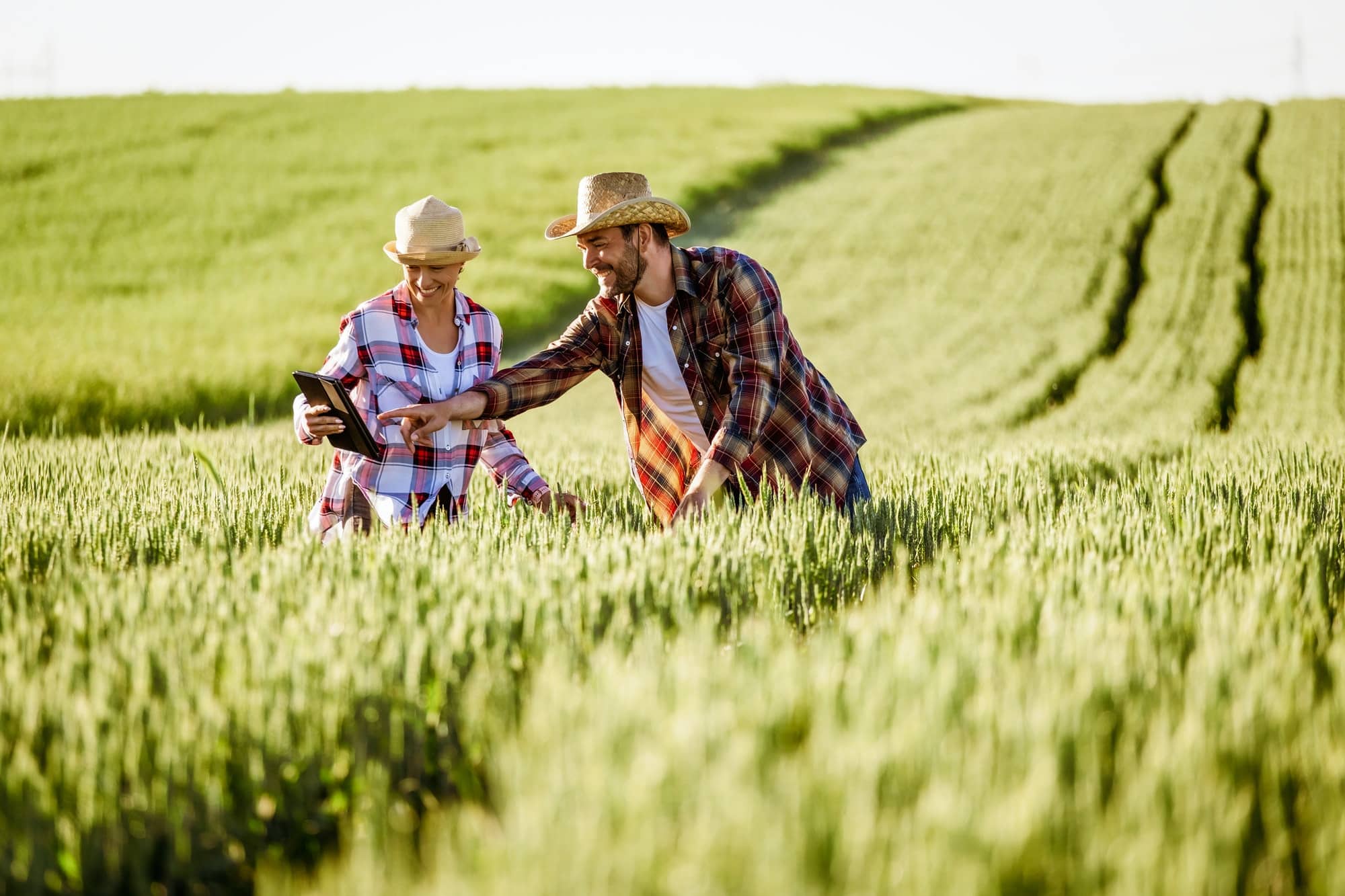What’s the Role of Artificial Intelligence in UK’s Precision Agriculture?

In the past decade, technology has significantly transformed the way we conduct our everyday lives. A similar trend can be observed within the agricultural sector. Artificial Intelligence and precision agriculture have increasingly become synonymous with modern farming practices. This article aims to delve into the role of artificial intelligence in the UK’s precision agriculture.
The Intersection of Precision Agriculture and Artificial Intelligence
Precision agriculture is an approach to farming that applies technology and data to manage both spatial and temporal variability associated with all aspects of agricultural operations. It’s a farming management concept that employs technology to observe, measure, and respond to inter and intra-field variability in crops. With the integration of artificial intelligence, the ability to execute precision agriculture dramatically improves.
A lire en complément : Can 3D Printing Technology Manufacture Affordable Housing in the UK?
Artificial intelligence refers to the simulation of human intelligence processes by machines. These processes include learning, reasoning, self-correction, and perception. AI in agriculture can help farmers to plan their strategy based on the predictive analytics derived from machine learning models.
Artificial Intelligence in Crop Management
When it comes to managing crops, farmers require accurate data for effective decision making. Artificial intelligence plays a crucial role in data collection and analysis. For instance, farmers use drone technology to monitor their fields, track the growth of their crops, and identify any potential issues.
Cela peut vous intéresser : What’s the Latest in Smart Wearable Devices for Health Monitoring in the UK?
These drones are equipped with intelligent systems that utilise machine learning algorithms to process the data they collect. They can identify areas of the field that require more attention, determine the health of the crops, and detect early signs of diseases or pests.
These insights are invaluable to farmers as they can make real-time decisions that improve their crop yield and reduce waste. Additionally, this information can also contribute to more sustainable farming practices by reducing the excessive use of fertilisers and pesticides.
Market Intelligence in Farming
AI is not only limited to crop management but it also plays a significant part in market intelligence. Here, it helps farmers to understand the market trends, analyse the demand and supply, and predict future trends.
For example, AI-based software can analyse various data sources like weather reports, crop reports, social media feeds, and news articles to forecast market trends. It can predict the prices of different crops in the future, giving farmers the insights they need to make informed decisions about what to plant and when.
This market intelligence helps farmers optimise their revenue by aligning their crop production with market demands. Furthermore, it aids in reducing food waste by preventing overproduction of certain crops.
Sustainable Farming and Artificial Intelligence
One of the key benefits of using artificial intelligence in agriculture is its potential to support sustainable farming practices. With the help of AI, farmers can manage their resources more efficiently, reduce their environmental footprint, and contribute to a more sustainable food system.
For instance, smart irrigation systems equipped with AI can monitor soil moisture levels and weather forecasts to optimise water usage. This not only conserves water but also ensures that crops receive the right amount of water at the right time.
Similarly, AI-powered pest prediction models can forecast an outbreak of pests or diseases based on data like weather conditions, crop stages, and historical outbreak patterns. This allows farmers to take preventative measures in time, reducing their reliance on harmful pesticides.
The Future of Artificial Intelligence in Precision Agriculture
The role of artificial intelligence in precision agriculture is ever-expanding. In the UK, various agricultural tech companies and scholars are working tirelessly to develop innovative AI technologies that can further revolutionise the farming sector.
For example, some are exploring the potential of AI in automating farming operations. This includes autonomous tractors that plough fields, robotic arms that pick fruits, and automated systems that feed and monitor livestock.
Also, efforts are being made to combine AI with other emerging technologies like blockchain and the Internet of Things (IoT) to create more robust agricultural management systems. These advancements not only promise to increase the efficiency and productivity of farming operations but also make them more resilient to environmental changes and market fluctuations.
In conclusion, artificial intelligence plays an integral role in precision agriculture in the UK. Its applications in crop management, market intelligence, sustainable farming, and future farming technologies are profoundly impacting the farming sector. As we continue to innovate, the intersection of AI and agriculture promises to usher in a new era of intelligent and sustainable farming.
Integration of AI and IoT in Precision Agriculture
The convergence of artificial intelligence and the Internet of Things (IoT) is reinforcing precision agriculture in the UK. IoT refers to a network of physical devices that communicate and interact with each other over the internet. When amalgamated with AI, it offers a more sophisticated, data-driven approach to farming.
Google Scholar lists numerous research papers exploring the combination of these two tech giants in agriculture. They collectively enable real-time monitoring and decision-making, enhancing the overall efficiency of farming operations.
For instance, IoT sensors deployed across the farms collect data related to soil moisture, temperature, light, humidity, and pH levels. This data, when processed using AI algorithms, provides crucial insights about crop health and growth. It can help identify the optimal conditions for crop growth and alert farmers about any deviations from these conditions.
Furthermore, AI and IoT also find applications in livestock management. Sensors attached to the animals can monitor their health and activity levels, predicting illnesses in advance and ensuring appropriate treatment.
Moreover, AI-powered IoT devices are used for automating various farming practices, including ploughing, seeding, irrigating, and harvesting. These autonomous systems not only reduce manual labour but also execute tasks with greater precision, reducing waste and improving crop yield.
AI in Water Management and Supply Chain
Water management is an essential aspect of sustainable agriculture. Over-irrigation can lead to water wastage and soil degradation, while under-irrigation can affect crop health and yield. Here, AI steps in to offer smart solutions.
AI-powered irrigation systems use sensors to monitor soil moisture levels, weather conditions, and evapotranspiration rates. They use this data to determine the exact amount of water required by the crops at any given time, enabling precision watering. This not only optimises water use but also improves crop productivity and sustainability.
In addition to water management, AI also revolutionises the agriculture supply chain. From predicting the ideal harvest time to tracking the journey of produce from farm to fork, AI enhances transparency and efficiency.
For instance, deep learning models can analyse historical harvest data to predict the best time to harvest crops. This helps in reducing post-harvest losses and improving the quality of produce. In the supply chain, AI-powered systems can track and trace the journey of produce, ensuring freshness and reducing food waste.
According to reports, the global AI in the agriculture market is expected to grow from USD 1 billion in 2020 to USD 4 billion by 2026. This growth is largely attributed to the increasing adoption of AI in various aspects of farming, including crop management, water management, and supply chain.
Conclusion
Artificial intelligence is redefining the landscape of precision agriculture in the UK. Its integration with other technologies like IoT is creating a paradigm shift towards more intelligent agriculture. AI is not just a buzzword; it’s a tool that’s helping farmers make more informed decisions, optimise resources, reduce waste, and enhance sustainability.
From managing crops and predicting market trends to optimising water usage and improving supply chain, AI has a plethora of applications in agriculture. As technology continues to evolve, the role of AI in precision farming is set to expand further.
The future of farming lies in harnessing the power of AI to meet the increasing food demands while minimising environmental impact. With concerted efforts from tech companies, scholars, and farmers, the UK is poised to lead the transition towards smarter, more sustainable farming practices.
